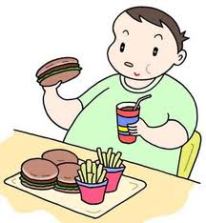 |
| Dealing with Grief |
Please don’t interpret anything in this article as being critical for feeling loss over the death of someone you love. It is both natural and necessary to work through the loss with friends, other loved ones, and by recalling cherished memories. We each deal with and express our grief in different ways.
And there is no attempt here to set a normal duration for grief. I’ve been grieving over one loss in our family for years now. I still feel the loss, but I also enjoy the memories and the joys of that relationship for so many years.
That form of grief is valid and it is not debilitating. It may bring tears; but the sad moment is gently put aside and life goes on.
On the other hand, grief can also render us incapable of any rational action, reasoned judgments, and make it impossible to enjoy on-going relationships. That sort of grief is harmful if it continues too long.
Common to most grief is a thought about what we lost. That could properly continue for many years. When we let those thoughts lead us to a period of reflection before putting them aside, that is a healthy response.
If we let those thoughts lead us to anxiety about other possible losses, becoming overwhelmed by depression, or being incapable of dealing with the required daily routine of life, we need to do something about it.
In a moment, you’ll see a very simple process you can use as often as you like to overcome your extended grief. Because I don’t want to leave you upset, I’m going to tell you about it and then direct you to try it – after you know what to expect.
Each moment of grief is initiated by a thought. If we dwell on the thought, it may be so intense that we seem to be reliving the actual loss again.
If you’re dealing with extended grief in your life these days, right now I want you to pause and think about your loss. But DON’T dwell on it. Immediately say to yourself, out loud, “I’m not going to think about that now.” If it recurs, say it again.
You’ll soon discover that the debilitating thought will go away. It will go away every time you demand that it go away.
You can deal with your extended grief so simply that many people have trouble accepting it. The most effective way to control the thoughts that lead extended grief is to say to yourself, out loud, "I will not think about that right now." Do it as often as necessary and do it out loud.
Someone said, “That’s easier said than done.”
Not really. You have the built-in authority to decide what you want to think about. If a thought causes you grief anxiety, don’t think that thought. It’s your choice. As you make that choice again and again, your subconscious remembers how you like to respond and will start to make your response automatically. It’s amazing how quickly this can happen.
Furthermore, you were made with a subconscious mind that has over time formed the opinion that you like dwelling on thoughts that make you grieve. The process of choosing not to dwell on those thoughts will, over time, convince your subconscious that you do not want to think about that those things anymore. It’s this process that creates the habit of peace and breaks the habit of grief.
At some point, you won't even realize you are thinking negative thoughts that lead to grief anxiety because your subconscious is automatically responding to the thoughts before they become conscious thoughts.
Nothing could be more effective than having your subconscious mind control your negative thinking for you before you even consciously think about it.
Resources you can use
Take 3 minutes to learn more about handling your grief simply and effectively.
Check it out - http://findingpersonalpeace.com/r005
You can use this idea for just about any negative emotion or habit that bothers you as well as grief anxiety.
I hope Finding Personal Peace helps you with your grief anxiety as much as it helped me with my anger problem.
www.findingpersonalpeace.com
Thanks for reading our blog today. I invite you to respond in several ways: (1) Comment in the space below if you agree or disagree with what I've said. A dialogue could be interesting for all; (2) Share the post with your friends using the buttons below; and (3) sign up to get an email with each new post. There’s a place to do that on the right. Then you won’t have to remember to look for our subsequent posts. Thanks again!


